All the elements and functionality on your website have an impact on your conversion rate and user engagement. The best way to determine what is working and what is not is to do A/B or split testing. This is the process of comparing two options against each other to see which one yields the best results.
For example, let’s say you want to test out a landing page. You need to choose one aspect of the page, such as the call-to-action. Keep everything else on the page the same but use different variations of the call-to-action. Measure to see which version converts better.

If you change too many elements on one page for one test, you won’t know which was responsible for the difference in clicks or conversions.
What Are Some Examples of Elements and Results You Can Test?
Any design, structure, or element on your website can be tested. However, some of the most common elements to test are:
- Graphics
- Calls-to-Action
- Headlines
- Buttons
- Page or post content
- Offers
- Prices
- Page title
- Opt-in forms

A result can be anything measurable. Some examples are:
- Clicks
- Conversions
- Views
- Sales
A/B Split Test Best Practices
Devise a strategy where you can isolate and separately test each element on each page of your website. What you are doing is using two different versions of the same page element to see which one performs better based on essential metrics.
First, choose what you are testing. Let’s use the example of your call-to-action. Your next step is to define your goal. For illustrative purposes, let’s use the number of clicks as the conversion metric.
The testing process rotates which version your website visitor sees. Run your test until the sample size is large enough to be statistically significant.
You also want to run it long enough to ensure the data you are collecting and analyzing is as accurate as possible.
Experts recommend that you run your test for a minimum of one to four weeks.
WordPress A/B Plugins

As with all WordPress plugins, A/B plugins are designed to make somewhat complicated tasks or functions easier for non-developers.
Below are a few plugins to help you run A/B split tests.
Simple Page Tester
With Simple Page Tester, you can run A/B tests without having to write any code.

It is a simple three-step process once installed as follows:
- Select the page you want to test.
- Click the Setup Split Test button that you can see on the editing screen.
- Pick whether you want to choose an existing page, duplicate a current page and make changes, or start from scratch.
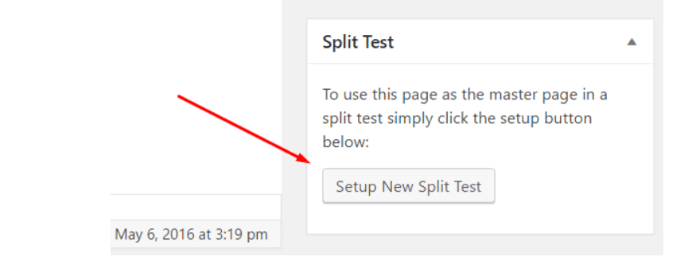
You will then be redirected to the split test main page. Here is where you select the details such as:
- What percentage of traffic to send to each variation.
- The test name.
You can also modify and view the variations.
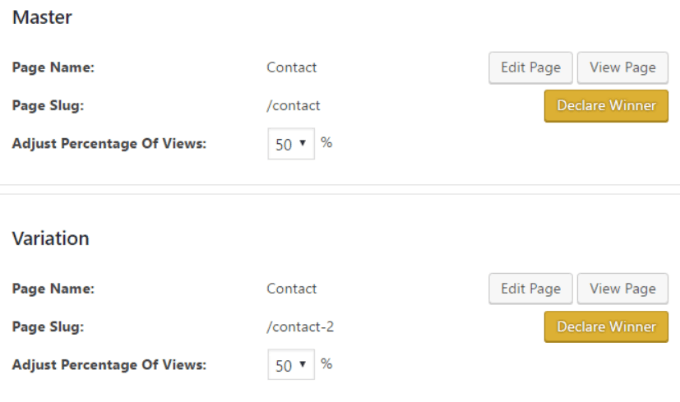
The plugin takes care of some important features for all website owners such as:
- The plugin developers followed Google Webmaster guidelines so that your tests will be seen as temporary and not affect your SEO.
- There is no need to worry about caching because the plugin was developed to run side-by-side with caching plugins.
- Tracking unique visitors to each variation in your test.
- Being compatible with Google Analytics to help you analyze your results.
- With the premium version of the plugin, you get access to built-in conversion tracking as well as automatic statistical calculations.
Nelio AB Testing WordPress Plugin
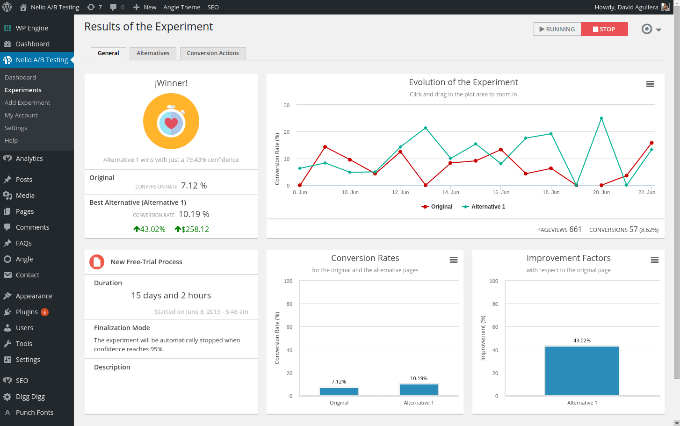
Define, track, and manage A/B testing with the Nelio AB Testing Plugin. This plugin is also compatible with WooCommerce enabling you to test:
- Featured images.
- Alternative names.
- Product descriptions.
Everything you need to perform valuable A/B testing can be accessed directly from your WordPress dashboard in a user-friendly and integrated interface.
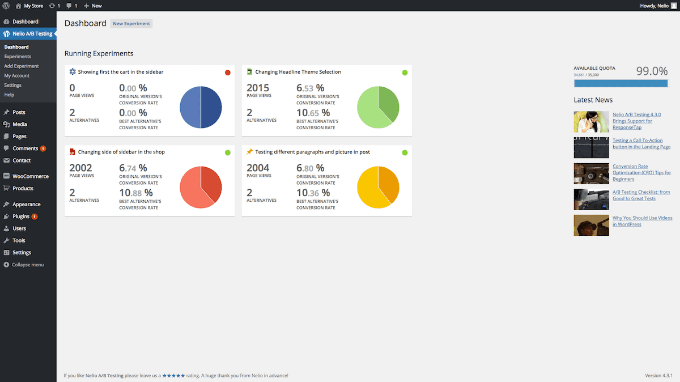
Don’t worry about your hosting provider because the Nelio plugin is compatible with all WordPress hosts.
There is no need to be concerned if you are non-technical because the plugin takes care of all HTML and behind the scenes code.
WordPress Calls to Action Plugin

The Calls to Action (CTA) plugin helps you create calls to action for your WordPress site. It also enables you to run A/B tests on this element.
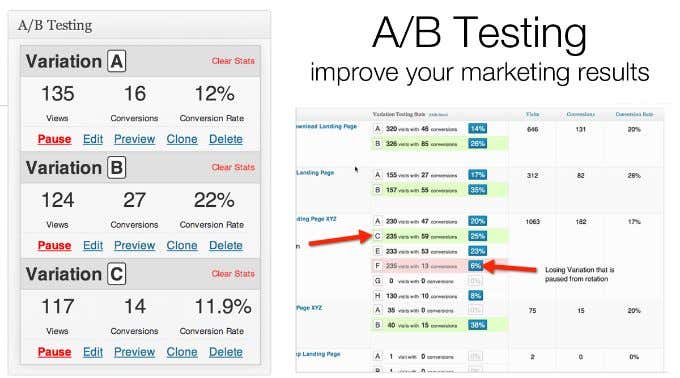
Since CTAs are essential elements of each page on your site for conversion optimization, the WordPress Calls to Action plugin is powerful and valuable.
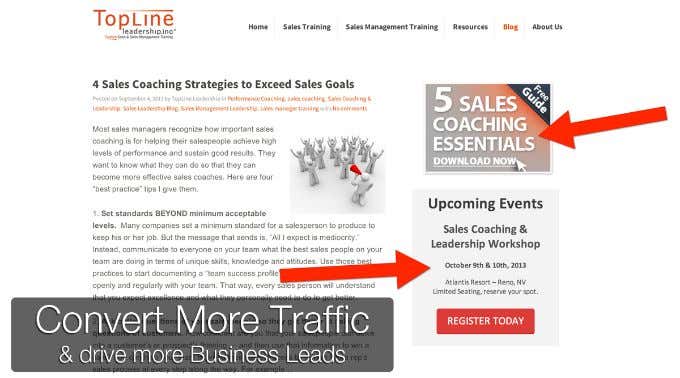
With this plugin, you can:
- Track conversions rates on each variation of your call-to-action.
- Make changes on the fly with the visual editor.
- Try using popup CTAs and test them.
- Clone current CTAs to easily make variations.
If you want your WordPress site to increase conversions, you need to do A/B testing. Using WordPress plugins makes this process easier.
Following the best practice section above will help you run useful tests. And do not think running one test is enough.
You will want to run tests on as many elements as possible, and repeat them when necessary, to best optimize your site for higher conversion rates.
Related Posts
David has a background in small business and lives in Australia. He is a WordPress and Ubuntu Developer who enjoys design, CSS and tech tool integration. Read David’s Full Bio
